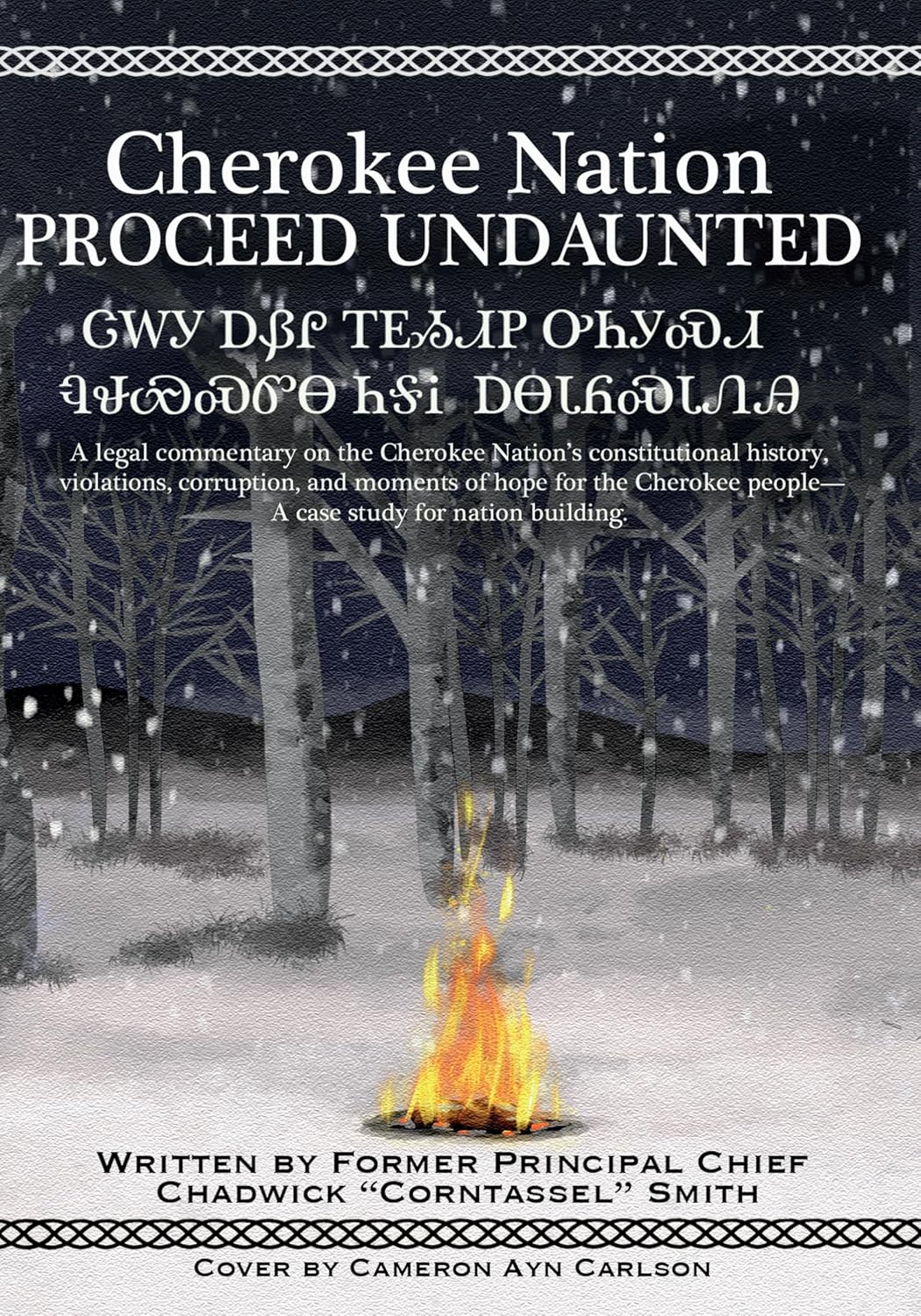
A nation’s sovereignty is only as strong as its ability to sustain itself financially. In Cherokee Nation: Proceed Undaunted, Chadwick “Corntassel” Smith examines the critical link between economic independence and political self-determination. Can the Cherokee Nation maintain its sovereignty while engaging in large-scale economic ventures, or does financial success risk compromising self-rule?
The Historical Struggle for Economic Sovereignty
From the time of forced removal to the present, the Cherokee Nation has faced economic dependence on federal funding. Smith details how early Cherokee governments operated independently, with trade and agriculture sustaining the community. However, as the U.S. government imposed restrictions and dismantled tribal land ownership, the Cherokee Nation became reliant on external resources.
- The Dawes Act (1887) – This law divided Cherokee land into individual allotments, leading to widespread economic instability.
- The Termination Era (1950s-1960s) – The federal government sought to end recognition of tribal governments, further limiting financial self-sufficiency.
- The Rise of Tribal Enterprises (1970s-Present) – To regain control, the Cherokee Nation expanded into business ventures such as gaming, healthcare, and federal contracting.
Economic Growth: Strengthening or Weakening Sovereignty?
Today, the Cherokee Nation operates billion-dollar enterprises, but Smith questions whether this economic success translates into true sovereignty.
How Economic Growth Strengthens Sovereignty
Less Reliance on Federal Funding – Revenue from businesses reduces dependence on federal grants, allowing the Cherokee Nation to make independent policy decisions.
Increased Political Influence – A financially strong Cherokee Nation can negotiate betterterms with the U.S. government and assert its legal rights.
Job Creation for Cherokee Citizens – Tribal enterprises provide employment, ensuring economic stability within the Nation.
The Risks of Economic Dependence on Business Ventures
Business Influence on Politics – As businesses grow, their interests may dictate tribal policies, prioritizing profits over cultural integrity.
Sovereignty vs. Federal Oversight – Some enterprises operate under federal contracts, meaning they must comply with U.S. regulations, limiting Cherokee self-governance.
Wealth Disparities – If economic benefits are not evenly distributed, financial success can create internal divisions, weakening national unity.
The Balance Between Growth and Independence
Smith argues that true sovereignty requires economic policies that align with Cherokee values rather than external business interests. He suggests several ways to ensure financial independence supports, rather than undermines, self-rule:
Expanding Locally-Owned Businesses – Encouraging Cherokee citizens to start small businesses keeps wealth within the community rather than relying solely on large corporations.
Investing in Sustainable Industries – The Nation should diversify beyond gaming and federal contracts to ensure long-term financial stability.
Ensuring Fair Wealth Distribution – Tribal leadership must guarantee that economic benefits reach all Cherokee citizens, not just political elites.
Maintaining Cultural Integrity in Business – Economic policies should align with Cherokee values, ensuring that growth does not come at the cost of tradition.
The Future of Cherokee Sovereignty
Smith’s warning is clear: Economic success does not automatically mean exercise of sovereignty. If financial power remains in the hands of a few or if businesses operate under external influence, Cherokee self-rule will remain compromised. However, if the Nation prioritizes ethical governance, sustainable economic policies, and cultural preservation, financial independence can become the foundation of true sovereignty. The Cherokee Nation must ask itself: Will its future be one of economic empowerment and self-governance, or will financial success lead to dependence on corporate and federal interests? The choices made today will determine whether the Nation remains truly sovereign in the years to come.